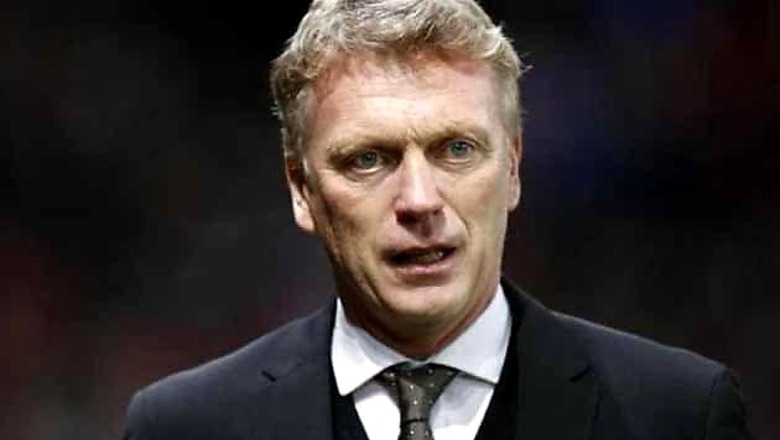
views
London: Manchester United manager David Moyes is no modern-day Wilf McGuinness but unless he pulls United out of their slump soon, comparisons with the former ill-fated boss will continue to haunt him.
Images of Alex Ferguson, who in May retired after 26 trophy-laden seasons in charge, staring down as United's players trudged off after Tuesday's Capital One League Cup defeat at Sunderland, evoked memories of Matt Busby peering from the stands at McGuinness as results went against him.
What is extremely unlikely is that Ferguson, 72, will come out of retirement to take the reigns back from Moyes, which is the fate that befell McGuinness on Boxing Day 1970 when he was sacked as manager with Busby, who had led the club through their glorious period of the late 1960s, taking his old job back.
Moyes said after Tuesday's defeat that Ferguson had been "nothing but supportive" of him since he took over and was a "a terrific sounding board" with support also coming from former club captain Bryan Robson on the training ground.
The common thread linking both Moyes and McGuinness is that Busby remained "upstairs" at United in the late 1960s and early 1970s in the same way that Ferguson has done today with both witnessing at close quarters their successors' early struggles in the job.
As a result, speculation has begun that Moyes' future at Old Trafford is already under threat, something Sean Bones, the vice-chairman of the Manchester United Supporters Trust, thinks is highly improbable.
"The main problem is not the choice of manager but the lack of investment in the side," Bones told Reuters on Wednesday.
"If you look at Real Madrid, Barcelona, Bayern Munich, they are supporter-owned clubs whose revenues are pumped back on to the field to improve the team and ensure deep squads full of good players.
"But until the owners of Manchester United, the Glazer family, relinquish control of the club, this will be a continuing problem for us.
"At the moment we have become an ordinary team with ordinary results, and while people don't like that, most don't think the manager is in danger."
"I don't think there is any risk at all that Moyes is under the same kind of pressure from Ferguson that Wilf McGuinness was from Sir Matt."
EXTRA-ORDINARY SUCCESS
Manchester United enjoyed extraordinary success under Ferguson who arrived at Old Trafford in 1986 and has said he relished the advice that Busby gave him in his early days.
Busby died aged 84 in January 1994 having lived long enough to see Ferguson end their 26-year wait for the title in 1993, the first since Busby's last championship in 1967.
Ferguson, who broke the Celtic/Rangers stranglehold in Scotland with Aberdeen before coming to United, was never overawed by Busby's achievements but it was a different story a quarter of a century earlier when McGuinness, who was 31, was appointed Busby's successor following his retirement at the end of the 1968-69 season after 24 years as the helm.
An England schoolboy international, he was a member of the Busby Babes team of the mid-1950s and had played twice for England before a broken leg ended his career at 22 in 1960.
He stayed at United and was reserve team coach when Busby decided he was the right man to replace him.
Eighteen months later, his hair having turned white and fallen out in clumps, he was sacked despite taking United to three cup semi-finals and an eighth place finish in the old First Division in his one full season in charge.
He briefly went back to his old job as reserve team coach, then left to manage Aris Salonika in Greece.
Busby, then 61, returned to his old job and stayed for another 18 months, but within six years of that European triumph, the club were relegated to the second tier.
PLAYING CAREER
Unlike McGuinness, Moyes had a long playing career which included a Scottish title at Celtic and spells at, among others, Bristol City, Shrewsbury Town, Dunfermline Athletic and Preston North End where he became manager in 1998.
After revitalising Preston's fortunes he became Everton's manager in 2002 and although he did not win any trophies in his 11 years at Goodison Park, they qualified for the Champions League in 2005 and were FA Cup runners-up in 2009.
Ferguson knew Moyes as a child, having played in the same Glasgow youth team with his father as teenagers and keeping a friendship later in life with the family.
Long before Ferguson retired he had identified Moyes as his successor. Their families are still close today.
Handed a six-year contract when he became boss, it is virtually inconceivable that Moyes will be replaced by anyone else as United's boss despite the team losing three successive matches for the first time since 2001 and facing the real prospect of failing to qualify for the Champions League.
Apart from the troubles surrounding the end of the Busby era, United have a reputation for being a stable, patient club.
Busby advised the United board to keep their faith with Ferguson despite him failing to win a trophy in his early years.
It would defy logic if Ferguson was not saying similar things today.


















Comments
0 comment